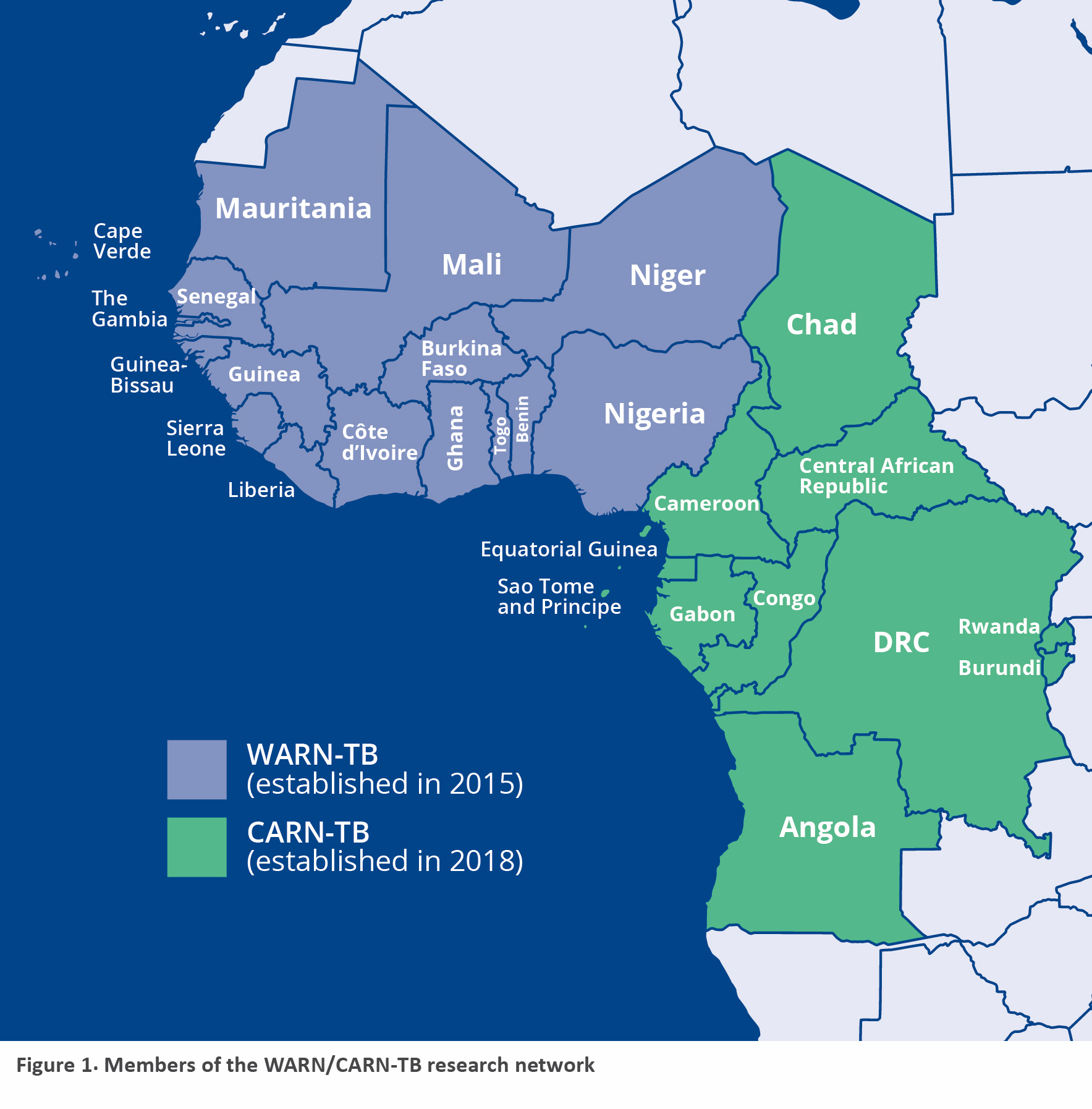TDR and partners are launching a new project to help mitigate the impact of COVID-19 and future public health emergencies on tuberculosis (TB) service provision in West and Central Africa.
The project is a partnership between the Robert Koch Institute (RKI), the West and Central African Regional Networks for TB Control (WARN/CARN-TB), the Health Information Systems Programme (HISP) at the University of Oslo (UiO) and the WHO Global TB Programme. Financial support for the project is provided by the German Federal Ministry of Health (BMG).
The project principally aims to 1) strengthen TB surveillance systems to detect and track disruptions in the context of public health emergencies (PHEs), and 2) support National TB programmes (NTPs) to develop preparedness and response plans that address these disruptions and mitigate their impact.
“We know from our experiences with Ebola that public health emergencies have significant potential to disrupt TB services,” said Professor Dissou Affolabi, Executive Secretary of WARN/CARN-TB. “There is concern that the COVID-19 pandemic may reverse much of the progress that has been made to date on TB, through factors such as the redistribution of TB staff to the COVID-19 response, interrupted TB diagnostic networks and treatment supply chains, and reduced opportunities for patient monitoring and support.”
Key outputs of the project will include:
- An impact assessment framework that can be used to monitor the performance of essential TB services during a PHE through process and impact indicators.
- A comprehensive DHIS2 package that digitizes the impact assessment framework indicators and integrates them into a digital TB surveillance system used in routine practice.
- Evidence-informed and data-driven country preparedness plans which are built into enhanced TB surveillance systems and describe strategies to be taken when disruptions are observed.
The project team are working with focal points from six NTPs of West and Central Africa (Benin, Guinea, Rwanda, Burkina Faso, Chad and Cote d’Ivoire) who are pilot testing the impact assessment framework to validate the indicators developed to monitor the performance of TB services during the COVID-19 pandemic. In the next phase, the project will involve the University of Oslo to develop in the DHIS2-TB module a comprehensive package which integrates the validated impact assessment indicators into the routine TB surveillance system of the NTPs.
“In times of crisis, it’s important that we get an accurate picture of how service systems are functioning to identify areas where additional support or mitigation strategies are needed, so that the community’s access to TB testing, diagnosis and treatment services are maintained,” said Dr Basel Karo, Coordinator at the Information Centre for International Health Protection at the Robert Koch Institute, a WHO Collaborating Centre for Global Outbreak Alert and Response (GOARN). “To do so, we need a robust surveillance system that is sensitive enough to detect changes quickly, to enable timely action.”
Lessons learned throughout the project will be shared with the NTP staff from all 27 countries participating in the WARN/CARN-TB networks (Figure 1).

For further information, please contact Dr Corinne Merle merlec@who.int or Dr Vanessa Veronese veronesev@who.int

